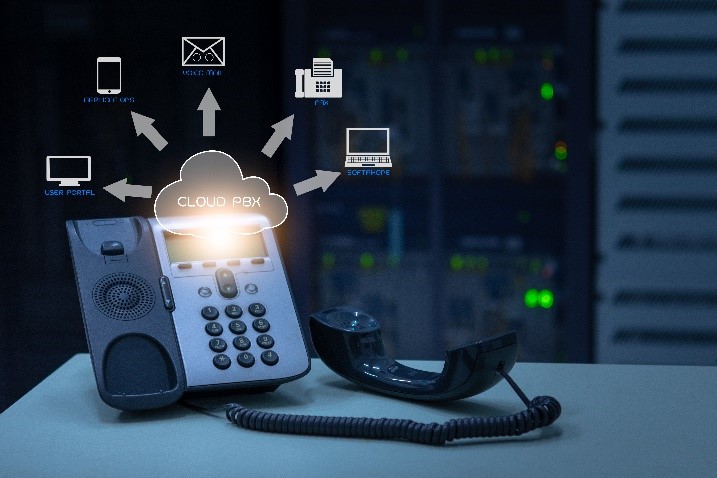SIP trunking is becoming increasingly popular in the business world because of its many benefits over traditional telephone systems. The benefits that are often championed include increased reliability, cost-saving opportunities and flexibility in scalability and strategy.
Of course, there is more to it than that. At Criterion Systems, we have written this handy guide on SIP trunking to help businesses that are still considering whether SIP trunking is right for them to identify the best telephone system for their business needs.
What is SIP trunking?

SIP Trunking (Session Initiation Protocol) is a form of telephony technology that is intended and sold as a replacement for the ageing ISDN phone line network. The imminent switch off of BT’s ISDN network and SIP’s many benefits are leading to SIP trunking quickly becoming the most common way for businesses to manage their voice communications. SIP connectivity is now the standard that is on most modern phone systems available.
What is SIP trunking used for?
SIP trunks allow businesses to place telephone voice calls through the PSTN (Public Switched Telephone Network) through the internet, rather than traditional phone lines.
SIP services are considered to be more flexible than traditional ISDN networks and are also much less expensive to maintain. This means that many businesses are increasingly looking towards SIP trunks for their telephone and communications needs.
How does SIP trunking work?
SIP Trunks are essentially virtual phone lines and work in the same way of traditional ISDN lines by connecting your PBX with the PSTN. The only difference is that instead of old copper phone lines, SIP connects through a broadband internet connection.
SIP trunking services can support a varied number of connections, from two channels for smaller PBX equipped businesses to an unlimited number of channels for much larger businesses. SIP trunking removes the need for traditional phone lines on premises.
As such, SIP is completely reliant on data connectivity and you will need to be aware of your business requirements. For example, you will need to know things like the volume of inbound and outbound voice calls that you receive and the size of the bandwidth required to support these calls. It is possible to use an existing data connection for your SIP system, however, a dependent connection is the best way to ensure the reliability of your voice traffic.
What is a SIP trunk?
A SIP trunk is the lines that transfer data signals from one another via electrical currents. SIP does this without the need of a physical connection, unlike ISDN that used copper wires. SIP links trunks to other IP systems or the PSTN through an internet connection.
What is the difference between SIP trunking and VoIP?

VoIP (Voice over Internet Protocol) is a technology that allows you to make or receive voice calls over the internet instead of traditional phone lines. SIP, however, is an application layer protocol that can establish, change and end multimedia sessions over the IP network, such as VoIP voice calls.
Unlike Voice over IP, which can only make voice calls, SIP trunking allows you to send data or video content. VoIP handsets also require a connection to an active computer to make or receive calls. SIP phones, however, are able to make calls without a computer and only require a modem to work.
What are the benefits of SIP trunking?
There are many benefits of SIP trunking that makes it an excellent choice for your business’ communication needs, including:
Cost-saving: SIP trunking, and other IP based phone systems, can help your business dramatically reduce its call costs. SIP trunking is 30–50% cheaper than traditional telephone lines and it is often possible to get free UK landline calls using a SIP phone system. IP connections are significantly cheaper than traditional ISDN lines and also has reduced maintenance costs thanks to fewer hardware requirements. SIP trunking can also offer you cheaper mobile calls and significant savings on international calls.
Security: SIP trunks add an increased level of security for your connections than traditional lines and should offer increased protection from fraud. A correctly configured SIP channel should allow you to take care of your connectivity security through a dedicated firewall or a router with firewalls.
Flexibility: Similarly to VoIP, SIP gives you control over your phone numbers. For example, If your business has established a presence in different countries, then SIP trunking allows you to have a virtual phone number that has local codes. This allows your customers or partners in these locations to contact your business as if it were local, rather then using expensive 800 numbers. This is helping businesses establish a foothold in foreign markets without having to open a local office.
Resilience: SIP trunking offers your business an increased resilience, helping you be prepared for anything. With SIP it is incredibly easy to divert your lines without expensive forwarding costs. In the event of a disaster or line fault, calls can be automatically routed anywhere else that has a broadband internet connection. This removes the need to maintain a parallel set of phone lines as a back-up and makes then inherently disaster recovery and business continuity ready.
Scalability: The main advantage of a SIP trunk phone system is its flexibility and scalability. SIP trunking can be easily scaled up or down, depending on your businesses needs. SIP gives you the option to immediately add extra trunks if you are experiencing an increased volume fo voice calls, or remove them when that demand has ended. This is significantly cheaper and easier than having to purchase and install fixed lines and is one of the things that makes SIP trunking so popular.
Why your business should choose SIP trunking

You are not alone in thinking that SIP trunking is the perfect solution to your business’ communication needs. In fact, British businesses are increasingly realising the many benefits that come from SIP trunking. SIP trunking is a reliable, cost-effective voice service that is cheaper and more flexible than traditional digital or analogue phone lines.
You are not alone in thinking that SIP trunking is the perfect solution to your business’ communication needs. In fact, British businesses are increasingly realising the many benefits that come from SIP trunking. SIP trunking is a reliable, cost-effective voice service that is cheaper and more flexible than traditional digital or analogue phone lines.
Not only is that scalability useful for growing businesses, but if you are a company that relies on seasonality or has an increased demand on their telephony at certain times of the year, then SIP trunking is a perfect choice for you.
SIP trunking allows you to plan for and accommodate for this season based change in demand and simply update your existing infrastructure when you need it, helping you cope with the increased demand. SIP trunking lets you easily increase the number of SIP channels you use, and decrease them afterwards.
SIP trunking is also a perfect phone system if your business operates across multiple sites. SIP will let you reduce the number of connections that you would need at each site, and would also reduce the associated maintenance costs.
SIP trunks and Unified Communications
Unified Communications (UC) is when you combine all of your various communications, such as email, voicemail and video conferencing, into one manageable strategy. SIP trunking can act as a gateway towards UC and can help your business access the benefits of an IP based system. A SIP trunk will let you control a unique ID from multiple networks or devices and is a great way to adopt unified communications.
SIP trunks connect your phone system directly to the PSTN, and can also connect mobile apps and other devices directly with your network. SIP trunking also allows you to move your network to the Cloud, which is a great way to unify all of your business communications.
How much does SIP trunking cost?
Similarly to adopting any other new technology, there are costs involved with setting up SIP trunks in your business. If your business does decide to invest in SIP trunking then it must be prepared to invest the time, effort and resources into setting up and maintaining the equipment.
There will be an initial investment for the set up of the hardware and purchasing SIP trunks from your service provider to consider. However, the return on that investment will be fairly substantial.
SIP trunking is far more cost-effective than traditional ISDN phone lines. With SIP you no longer have to pay for line rental and the infrastructure and maintenance costs are lower due to the reduced hardware requirements.
Getting started with SIP trunking is not difficult for your business, however, it is important for you to fully understand the technology and how it works before committing. SIP trunking is often the most suitable choice for a business that operates in a digital business environment.
If you have any more questions about SIP trunking or the other telephone systems that we provide then please contact us here or call us on 0161 429 4910 and we can help you select the best phone system for your business needs.

